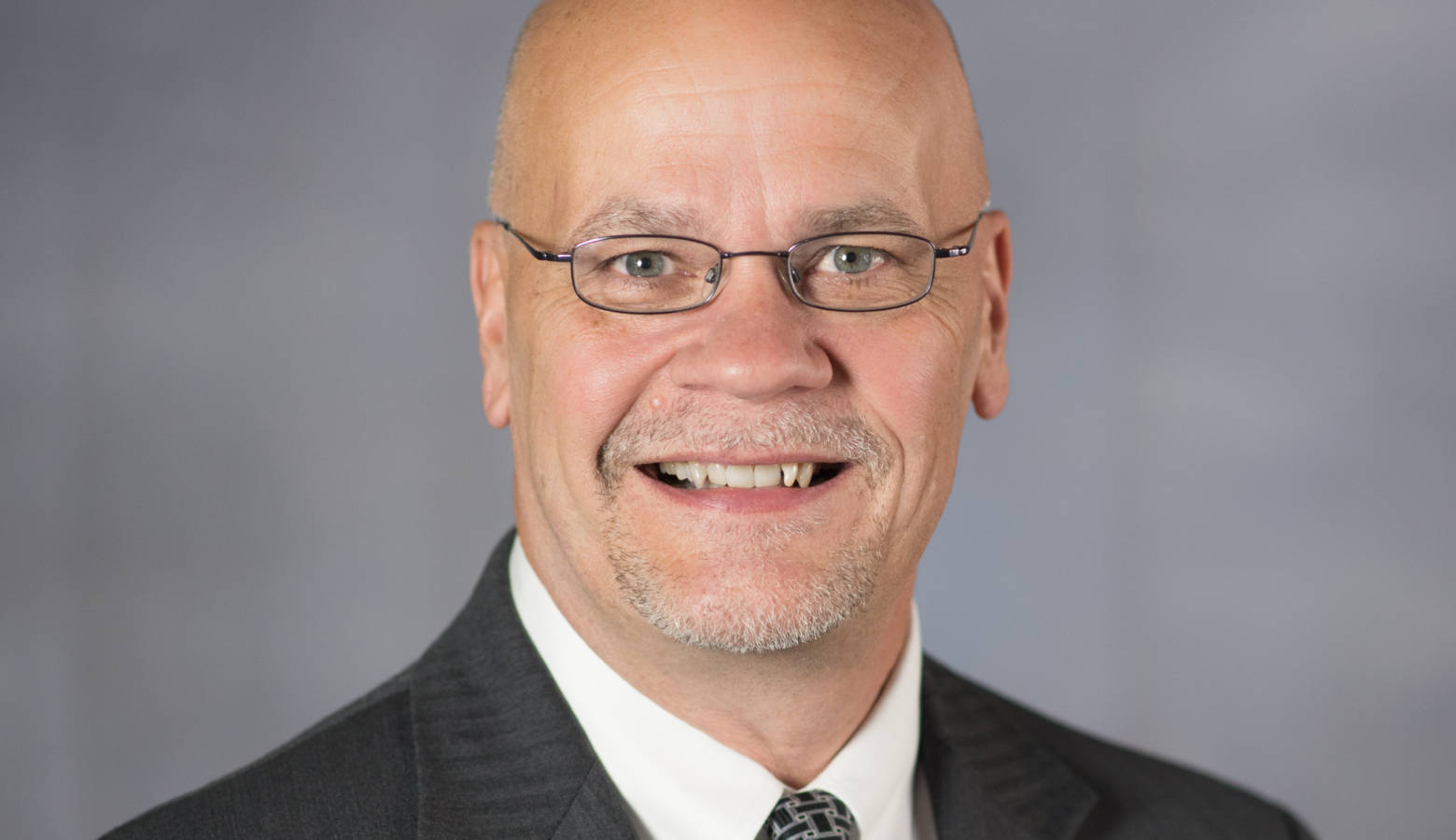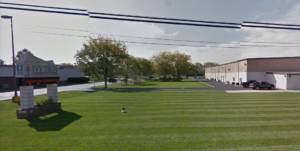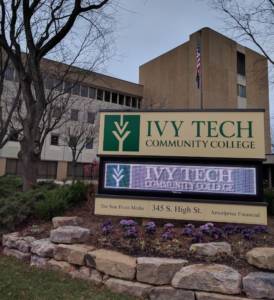Muncie Ivy Tech Chancellor: Becoming More Of A Partner To Community

Ivy Tech Community College has done some rearranging at the top. The state community college system has moved from regional administration to having local chancellors lead almost every campus. It’s a move that new Muncie and New Castle chancellor, Jeff Scott, likes. Scott has been with Ivy Tech in different jobs since 2001. As he tells IPR’s Stephanie Wiechmann, he’s glad for the increased focus on community.
Stephanie Wiechmann: I know that you’ve been vice chancellor of the East Central region for a while. You’ve been part of Ivy Tech for a really long time. How have you seen the Ivy Tech system change since you’ve been here?
Jeff Scott: Well, there’s been some constant evolutions since I started as an adjunct professor back in 2001, and then came full time as a criminal justice program chair in the fall of 2004. During that time, we’ve moved into downtown Muncie, which has helped with revitalization. [It’s] been very exciting to see our students engaged, shopping down there, going to the restaurants, hanging out downtown. Which is one thing we’re excited about, as well, with our new building project, is that continued presence and partnership that we have with the city of Muncie, Delaware County, as well as being downtown.

Ivy Tech is located both in downtown Muncie and at this location on Cowan Road. (Photo: Google Maps)
SW: Muncie Ivy Tech seems to have a unique in that you’ve got several buildings downtown, but they’re not directly next to each other, and then you have Cowan Road. How do you create kind of a campus culture with that kind of broad building placement?
JS: There’s been some challenges in making sure we maintain some synergy. We’ve been very deliberate about the schools and the programs that we’ve located downtown. That students get used to just being downtown. And so, they go between the Fisher location as well as the Patterson Building. We’ve kind of built our schedules around – formatted them in such a way that students are able to walk back and forth. Much like being at Ball State, and you have to go between buildings. We’ve tried to give that feel a little bit.
SW: You’ve mentioned the money, some of the projects you’re going to be working on. You’ve got $43 million in state and local funds. What is that going to be used for?
JS: Redesigning and building state-of-the-art facilities at our locations, and we’re finalizing some plans now and hope to release additional renderings and those plans in the very near future. We’re very excited about the impact it’s going to have on the community and the excitement that it’s going to build among our students and faculty and staff. It’ll, I think, help to engage the community that much more.
SW: Since (former Lieutenant Governor) Sue Ellspermann came aboard Ivy Tech, she’s changed the administration structure from a regional to a more campus approach. How is that going to help the Muncie and New Castle sites?
JS: Very excited about the move back to, kind of, community. Kind of getting away from that larger regional or even bi-regional structure. We’re going to be able to be a lot more nimble, be able to be a lot more responsive to what some of the community needs are. To try to partner with economic development, city administration, county administration, while also being much more responsive to our student needs. It’s important that we’re kind of an anchor, you know, for the community. Our students who attend Ivy Tech tend to remain in the community. And that’s an important aspect of our presence.

The Patterson Building in downtown Muncie is known for its bright yellow color and orange moldings. (Photo: Uploaded to Google Maps)
You know, one thing we have going with Muncie Central High School this year that we’re very excited about is we’re going to have over 75 students who will graduate in May with either – with their high school diploma as well as a transfer General Education Certificate and/or an Associate’s Degree. It’s something the community can be very proud of.
SW: Do you think those dual credit classes are kind of the next generation of early college education?
JS: I do. I think what we’re able to provide in the dual credit opportunity is very important. There was a time when the K-12 systems did a lot with AP classes. You know, then [students] had to score a certain level to be able to get that college credit. And so, with the dual credit opportunities, they’re taking college courses. Those classes are able to transfer right in to, not only Ivy Tech, but if it’s a core class – English, some of the math – then those classes can go to any of the state public four-year partners.


